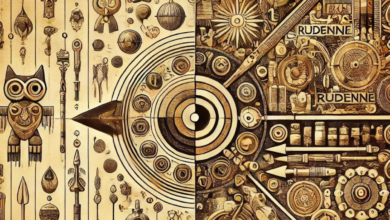Introduction
In contemporary utanmaz türklere, specific phrases transcend their literal meanings to encapsulate broader societal issues and cultural shifts. “Utanmaz Türklere,” or “shameless Turks,” is one such expression that has stirred debates and discussions, reflecting underlying changes in cultural values and societal norms within Turkey. This article delves into how this phrase, often controversial, mirrors the evolving narratives in Turkish society and what it signifies about the country’s cultural trajectory.
The Origin and Usage of ‘Utanmaz Türklere’
The term “Utanmaz Türklere” emerged within Turkey’s socio-political lexicon as a descriptor for actions or attitudes perceived as defiant or irreverent toward traditional norms. Initially used in media and political rhetoric, the phrase has since seeped into everyday language, often critically and humorously employed. Understanding its origins requires a brief journey into Turkey’s dynamic socio-political landscape, where rapid modernization clashes with deep-rooted traditions.
Cultural Shifts in Modern Turkey
Turkey’s cultural landscape has been characterized by its straddle across East and West, precipitating a unique blend of traditionalism and modernism. The last few decades have witnessed significant shifts:
- Urbanization and Globalization: As Turkey has urbanized and globalized, exposure to diverse cultures and lifestyles has challenged traditional values. This exposure has sometimes been met with resistance, encapsulated by terms like “Utanmaz Türklere,” highlighting the tension between the old guard and the new influences.
- Generational Changes: Younger generations in Turkey are often at the forefront of pushing cultural boundaries, driven by a desire for more liberal, progressive lifestyles. This generational divide is sometimes expressed through language, with “Utanmaz Türklere” as a battleground term.
- Political and Social Movements: From feminist movements to LGBTQ+ rights, various groups have used the term to criticize societal norms or, conversely, to label these movements as too radical or disrespectful of Turkish traditions.
Media’s Role in Reshaping Narratives
The media plays a pivotal role in either reinforcing or challenging cultural narratives. In the case of “Utanmaz Türklere,” media portrayal has varied significantly:
- Traditional Media: Often conservatively aligned, traditional media outlets have used the term to decry what they see as moral decay, thus reinforcing traditional narratives about etiquette and social norms.
- New Media and Social Platforms: Conversely, platforms like Twitter, Instagram, and independent blogs have reclaimed or redirected the narrative, using “Utanmaz Türklere” ironically or as a badge of honour to signify resistance against oppressive norms.
Analyzing the Impact on Society
The impact of the term “Utanmaz Türklere” on Turkish society is multifaceted:
- Social Dialogue: It has sparked extensive social dialogue about what constitutes acceptable behaviour and who defines these norms.
- Cultural Identity: The term has become a reflection point for discussing Turkish identity in the modern world, often highlighting a society in flux.
- Resistance and Acceptance: While some view the label as unfavourable, others see it as a symbol of societal progression and a challenge to outdated norms.
Conclusion
“Utanmaz Türklere” is more than just a phrase—it is a mirror reflecting Turkey’s complex dance with modernity and tradition. As cultural values continue to evolve, so will the narratives surrounding this powerful term, proving that language is a communication tool and a catalyst for cultural change.
FAQs
- What does “Utanmaz Türklere” mean?
- “Utanmaz Türklere” translates to “shameless Turks” and is used to describe individuals or groups that challenge societal norms in Turkey.
- How has the meaning of “Utanmaz Türklere” evolved?
- Initially a term of criticism, its meaning has broadened to include negative connotations and, among some circles, a positive reclaiming against perceived outdated norms.
- What factors have influenced the cultural shifts reflected by “Utanmaz Türklere”?
- Factors such as globalization, generational shifts, and media influence contribute to a more dynamic interpretation of cultural norms.
- How do different generations in Turkey perceive the term “Utanmaz Türklere”?
- Older generations might view it more critically, seeing it as a sign of moral decline, while younger generations often embrace it as a symbol of liberation and change.
- Can “Utanmaz Türklere” be seen as a positive term?
- Yes, particularly among progressive groups and the youth, who may use it to denote pride in challenging restrictive cultural norms and advocating for modern values.
You May Also Read: https://usaredmagazine.com/shitjig-name-meaning/




